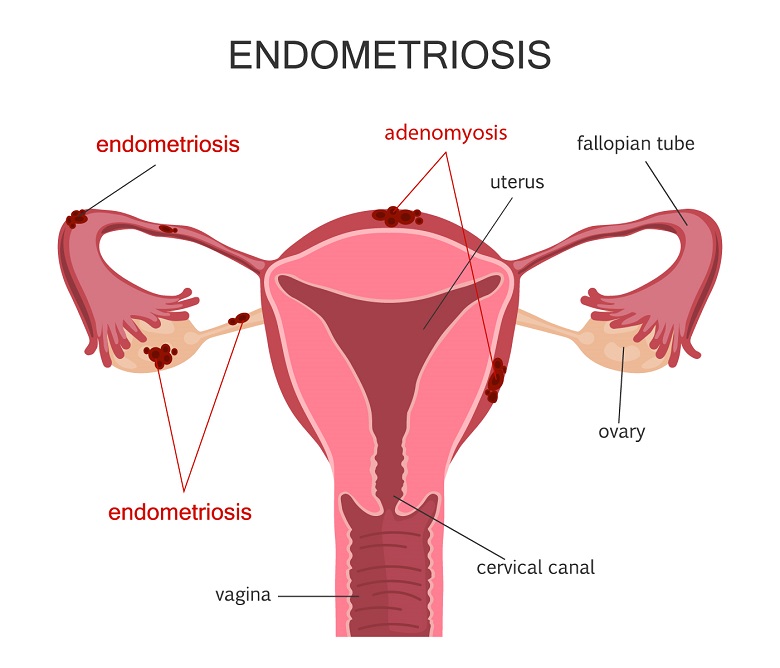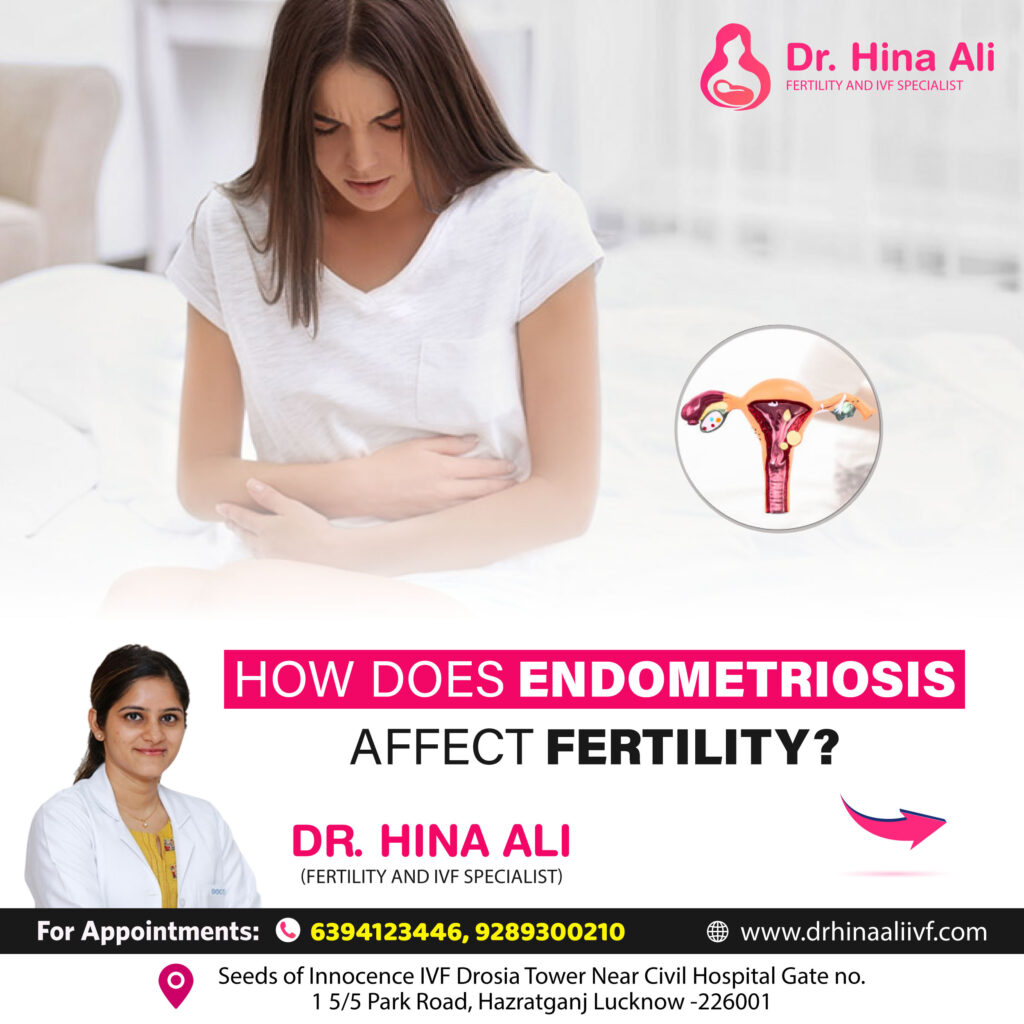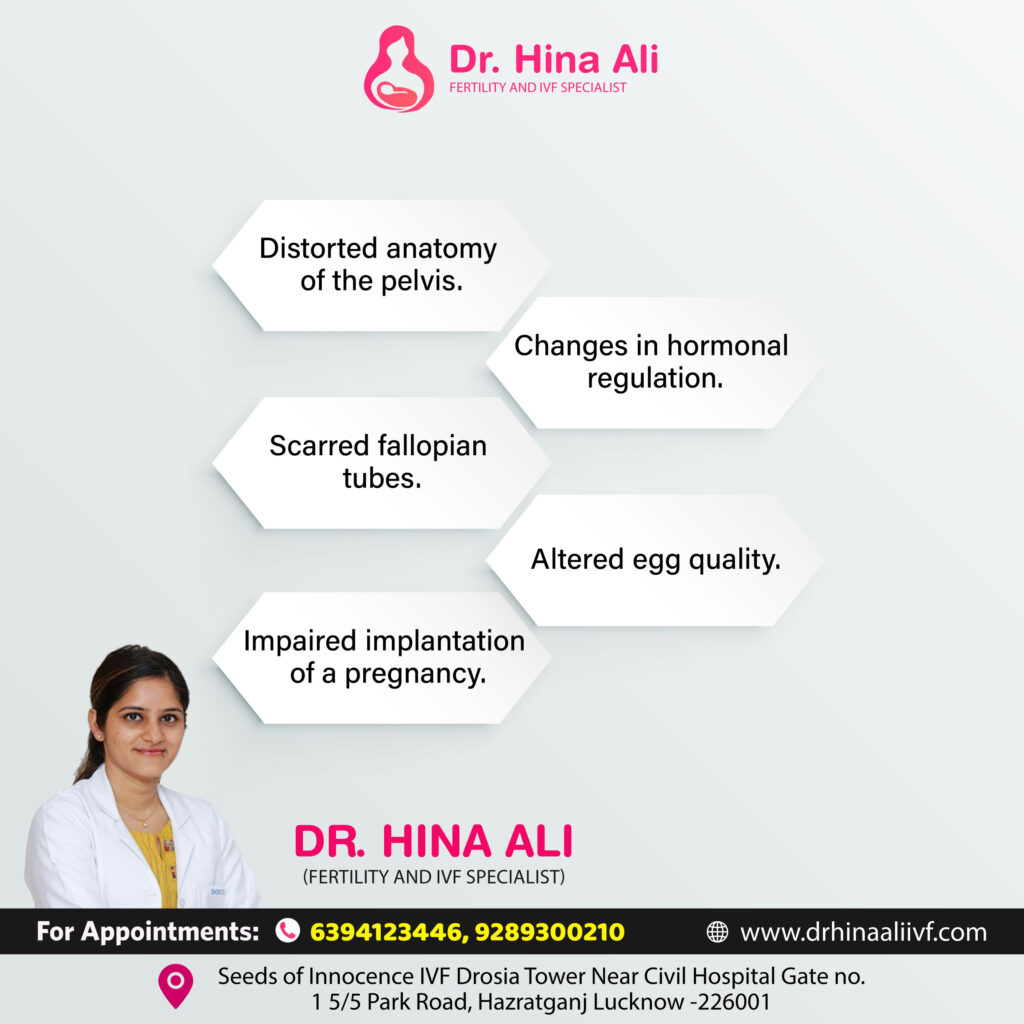
Endometriosis: Causes, Symptoms, and its Impact on Fertility
Did you know endometriosis and infertility are related? When endometriosis affects the reproductive organs, it may lead to the formation of adhesions, scar tissue, and inflammation. These factors can interfere with normal reproductive processes, potentially causing infertility.
What is Endometriosis?
Endometriosis is a gynaecological condition where tissue similar to the lining of the uterus grows outside the uterine cavity. The endometrial tissue can grow outside the uterus in places like the ovaries, fallopian tubes, lining of the pelvic area, and abdomen.
This can result in pelvic pain, heavy vaginal bleeding, infertility problems, and bleeding between periods.
The endometrium is the innermost layer of the uterus, also known as the mucosal layer or membrane. The main function of the endometrium is to provide an optimal environment for the implantation of the embryo. These are the tissues that shed during the menstrual period and leave your body.

There are various factors that define the thickness of the endometrium, such as the individual’s menstrual cycle. It can affect women of any age and have a significant impact on their daily activities.
What Are the Symptoms of Endometriosis?

The symptoms of endometriosis may vary and can affect individuals differently. You may experience some of the noticeable symptoms, which include the following:
- Pelvic pain that worsens during the period
- Severe menstrual cramps
- Unusual or heavy bleeding between periods
- Pain during or after sex
- Difficulty getting pregnant or fertility problems
- Painful bowel movements
- Excessive bleeding
If you’re experiencing any of the symptoms, you can consult your healthcare provider to discuss your treatment plan and help manage the symptoms related to endometriosis.
Endometriosis and Infertility: Causes
There are no medical instances to date that can identify the reasons behind endometriosis. However, it is believed that it can occur because of some of the possible reasons that are discussed below:
- When menstrual blood flows back into the pelvic cavity through the fallopian tubes rather than getting out of the body, Blood containing the tissues can attach to the pelvic organs and cause endometriosis.
- Having a family history of endometriosis
- Immune system disorders can make it impossible to recognise and destroy the endometrial tissue.
- After the hysterectomy or a C-section, endometrial tissue may attach to the surgical incision and grow.
When endometrial tissue grows outside the uterus, it can result in increased inflammation, and adhesions and can lead to discomfort and pain.
What Are the Complications of Endometriosis?
Endometriosis can give rise to certain health conditions, and that includes the following:
- Chronic pelvic pain that can disrupt daily activities
- Difficulty getting pregnant
- May affect the function of the ovary
- Can cause adhesions and scarring
- Leads to bladder problems
Endometriosis and Infertility


If you’re dealing with endometriosis and are left untreated, it can become more difficult for you to become pregnant. Endometriosis can lead to adhesions and scarring in the pelvic area, which can affect the normal functioning of the reproductive organs. In some cases, endometriosis and infertility are found to be closely related.
In endometriosis, a tissue similar to the lining of the uterus grows outside on other parts of the body, such as the ovaries or the tissue lining the pelvis. If a woman has endometriosis in the fallopian tube, the endometrial tissue can keep the egg from travelling to the uterus. It can also affect the egg quality and quantity.
Contact your gynaecologist/fertility specialist to learn about endometriosis and infertility and discuss your concerns.
CONCLUSION
Endometriosis is a medical condition that can lead to uncontrollable pelvic pain and may also reduce fertility. The main symptoms of endometriosis include unusual or heavy bleeding between periods, pain during or after sex, and difficulty getting pregnant.
If you’re dealing with endometriosis, consult your fertility specialist to discuss your health conditions and get the proper treatment plan. By talking with your healthcare provider, you can discuss your concerns and goals with them, which will help you make informed decisions.